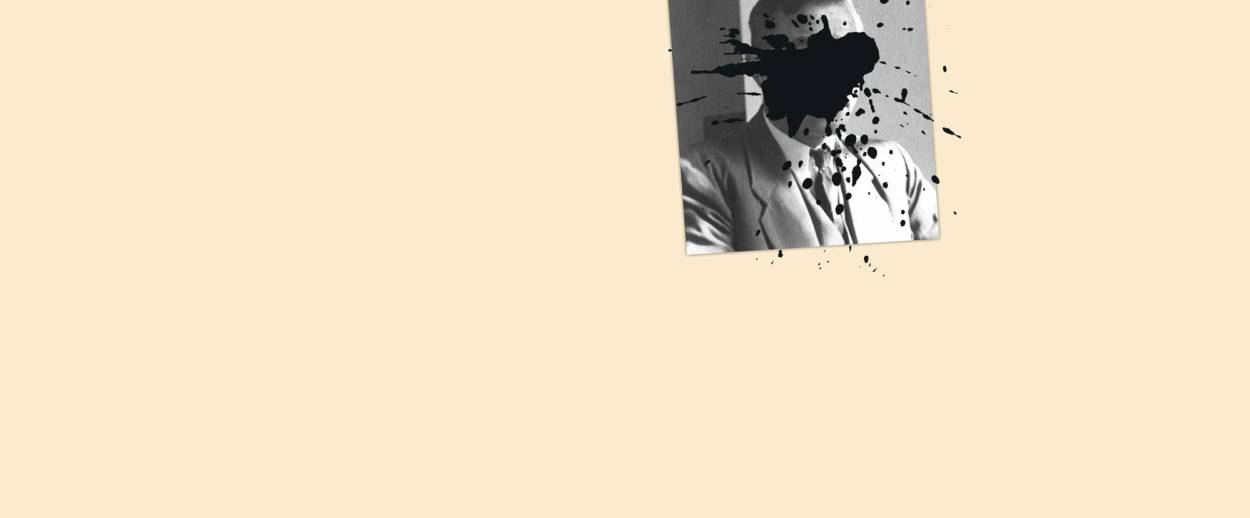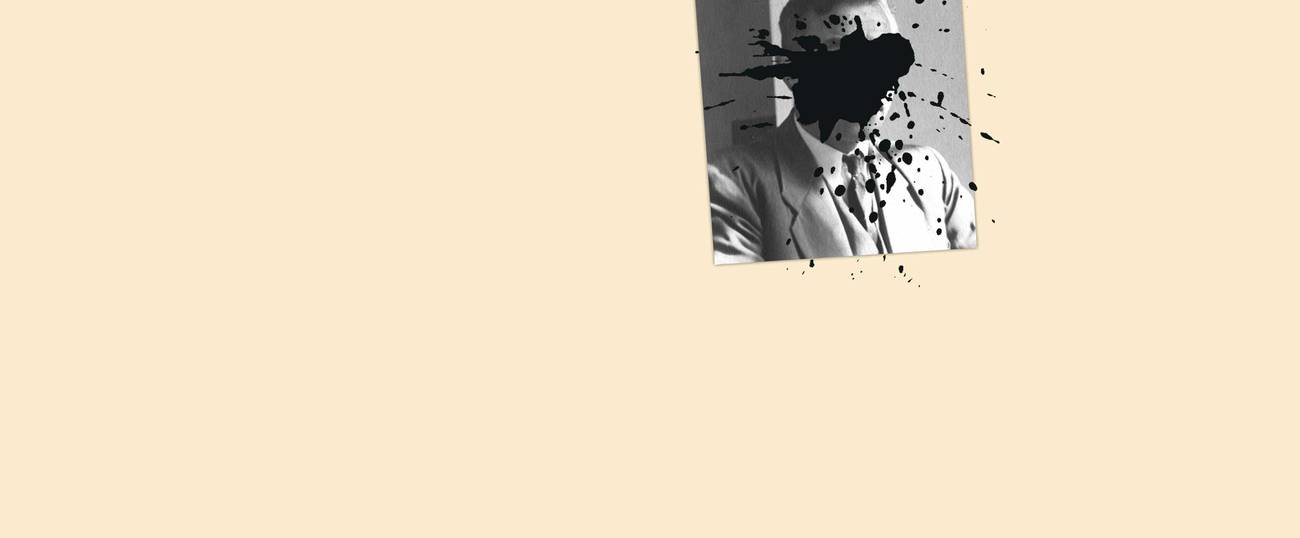Philip Roth’s Spooks
Why the story of Coleman Silk’s epic struggle to escape his roots is still the most-loved Philip Roth book in France




Everyone knows. Thus starts the anonymous letter received by Coleman Silk, a Jewish classics professor and dean at Athena College, in Massachusetts. Silk has just resigned as dean of the college, after uttering a racial slur, and now stands accused of preying sexually on a vulnerable young woman. “Everyone knows”: Years before the advent of social media’s public shaming, and the prevalence of #MeToo, identity politics, and political correctness in our fast-moving public discourse, the words provoke the fall of Silk, the tragic hero of The Human Stain, the third act of Philip Roth’s American trilogy, following American Pastoral and I Married a Communist. Silk’s accusers, however, don’t know the secret he has been hiding his entire adult life.
The death last month of Philip Roth, at age 85, has garnered a well-deserved trove of tributes. His exuberance, freedom in style and themes, and hilarious descriptions of sex-crazed Jewish men made him a celebrated, albeit divisive, novelist. In the last years, for obvious reasons, his 2004 uchronia The Plot Against America, describing the ascension to the presidency in 1940 of aviator—and spokesperson of the isolationist America First Committee—Charles Lindbergh, followed by the slow erosion of the rule of law, found renewed fame. Many readers in the Trump era saw Roth’s dark tale of his Jewish family dealing with the new normal as confirmation that it could happen here. But Coleman Silk’s disgrace speaks as well or better to our troubled times: More than any of Roth’s work, it confronts the individual’s losing conflict with the tribal beast bent on holding him down.
One day, noticing the absence of two students he has never seen, Silk asks his class: “Does anyone know these people? Do they exist or are they spooks?” What Silk doesn’t know is that the two students are African-Americans and his use of “spooks” will be construed as a racial epithet. Silk is pushed to resign; his wife dies a few days later, a tragedy he pins on the stress caused by the ordeal. The indignation doesn’t stop there. As he finds solace with a 34-year-old janitor, half his age (with some help from the little blue pill), Silk is accused of sexually exploiting a younger woman. His own children confront him about the indiscretion, and let him know of the false rumors spreading about his lover having had an abortion and attempting suicide. Everyone knows.
Silk immediately guesses that the anonymous letter he received was written by French professor Delphine Roux, a feminist he recruited to the university, who confronted him about his teaching of Euripides’ texts that she calls “degrading for women.” To Roux’ annoyance, Silk rejects these “narrow, parochial ideological concerns”; he won’t look at these texts from a feminist perspective, or “even from Moses’ Jewish perspective. Never even from the fashionable Nietzschean perspective about perspective.” Not forgetting that prior humiliating conversation, Roux denounces him to the faculty when she learns of the new accusation of racism.
But here’s the catch: Silk is not actually a white-skinned Jewish man. He is black, with a light skin that has allowed him to pass. His father taught him the importance of language. Life showed him the burden of racism, a system bridling his intelligence and ambition; but life also gave him a way out. A first woman leaves him when she realizes, after meeting his parents, Silk’s true identity, which he had conveniently avoided discussing. “I can’t,” she cries when they drive home. He won’t make that mistake again: He pretends to the secular Jewish woman he ends up marrying. This act of self-creation involves a tremendous sacrifice, a severing. He pretends his parents are dead. In a heartbreaking scene, Silk confronts his mother, and tells her that she won’t see him again. Perhaps she will be allowed to see her grandchildren from afar, on a bench in the waiting room, at the New York railroad station.
Silk wants a life of unshackled freedom. He wants the opportunities of a white man, to reinvent himself. Isn’t this what it means to be an American?
***
As James McAuley, the Washington Post correspondent in Paris who interviewed Roth shortly before his death, noted on Twitter: “So many in France who love Roth seem to love The Human Stain the best. Lots of possible explanations for why, but it’s definitely not the American favorite, I’d venture to say.” It certainly is the one of Roth’s that made the strongest impression on me, perhaps because it shattered the illusions of Sartre’s radical individualism expressed in Existentialism Is a Humanism (a must read for teenagers in France, if nowhere else): “Existence precedes essence.” Perhaps the French saw in this tale of failed reinvention an allegory for the false lure of America, the discrepancy between the dream of the self-made man and the reality of roots and history always calling back. I suspect though, for all his flaws, that they love Coleman Silk, like I do, because he’s the ultimate American.
The American freedom to invent oneself from scratch, even at a terrible cost, is at the epicenter of Roth’s work. He has ironically ascended to the pantheon of Jewish writers in America, a status he always rejected. Yet most of his characters attempt to break out of the prison of the tribe. All of Roth’s greatest creations—Zuckerman, Portnoy, Silk, Mickey Sabbath—are in unbridled rebellion against the norms of their group. Shame, guilt, and political correctness are all weapons that the group uses to take them down and reclaim ascendancy over its turbulent sons.
Of course, one can ask: What kind of freedom are we talking about when we try obsessively to escape something? Rebellion is its own prison: That is the irony that Roth’s characters always wrestle with. They are so obsessed with escaping that they are never free: from their male urges, their resentment, their Judaism, their family. They define themselves through their opposition to the constraints of the cultural and biological shapes into which they are unwillingly thrown. As Alain Finkielkraut says of Silk in his beautiful critique in Un Coeur Intelligent (An Intelligent Heart): “He rips himself of the embrace of the plural’s first person: Coleman is a pioneer of the I.” But the “we” catches up with him.
The Human Stain takes place against the backdrop of Bill Clinton’s impeachment, and while Roth’s novels don’t pick partisan sides, the narrator has nothing but contempt for Clinton’s conservative accusers. In 1998, the scolds were members of the religious right, not the woke social-justice warriors of American campuses. “It was the summer in America when the nausea returned, when the joking didn’t stop. … It was the summer when a president’s penis was on everyone’s mind, and life, in all its shameless impurity, once again confounded America.”
Yet Roth (or his narrator) quickly sees the mirror image of this puritanism in the left-wing mob that takes down Coleman Silk: It censors, demands atonement and moral purity. It wants to cleanse the stain. As Silk’s lover, Faunia Farley, a janitor pretending to be illiterate to escape society’s pressure, puts it: “It’s [the human stain] in everyone, indwelling, inherent, defining. The stain that precedes your acts of disobedience, it encompasses disobedience, and perplexes all understanding and explanations. It’s why all talk of cleansing your heart is a joke. The fantasy of purity is appalling for what is the quest to purify but more impurity. The stain is inescapable.” Until the end, Silk refuses to atone.
Who is defending this purity today? I was struck last month by the almost unanimous praise showered on Ta-Nehisi Coates’ essay on Kayne West, which argued for the reduction of the individual to the tribe. West was looking for “white freedom,” Coates wrote, “freedom without consequence, freedom without criticism, freedom to be proud and ignorant.” Notwithstanding the strange view of white speech it entails (is it really without consequence?), the argument here is that West’s transgressions are all the greater because he failed to stick to his group.
“What Kanye West seeks is what Michael Jackson sought—liberation from the dictates of that we,” Coates thundered. But when did we start celebrating intellectuals acting as political enforcers? Roth would have abhorred the reduction of a character or an artist’s speech to the banalities of identity politics. Yes, one’s speech is affected by roots, upbringing, and education. But to argue it should be, rather than to aspire to a discourse based on empathy and universalism, seems like a step backwards.
***
You can help support Tablet’s unique brand of Jewish journalism. Click here to donate today.
Benjamin Haddad is a research fellow at Hudson Institute specializing in European and transatlantic affairs.